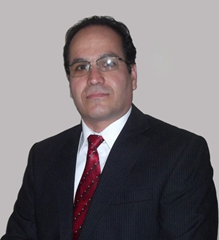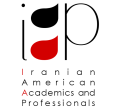Where: Montgomery Community College (Rockville Campus) – Humanity Building (HU), Conference Room 009 (Get Directions, Campus Map )
Language: Farsi

Synopsis:
Stem cell is a simple cell in the body that is able to develop into any one of various kinds of cells. In 1868, German biologist Ernst Haeckel for the first time used the phrase “stem cell” to describe the fertilized egg that becomes an organism. In 1981 Martin Evans and Gail Martin derived pluripotent stem cells from the embryos of mice.
We now know: Stem cells have the potential to treat an enormous range of diseases and conditions that plague millions of people around the world. Their ability to treat so many diseases rests on their unique properties. Stem cells can renew themselves almost indefinitely, and have the special ability to differentiate into cells with specialized characteristics and functions.
The most important therapeutic value for stem cells is the use of cell therapies. A cell therapy is a treatment that replaces dysfunctional or diseased tissues with stem cells.
Every day we hear of treatments around the world using stem cells. There are two basic types of stem cells therapy: Using self stem cells (Autologous) or using donor’s stem cells (Heterologous). For all of these types, there are separate banks. Some parents are now banking their babies’ cord blood in case it can help them in later life and some donors are registered their names in adult stem cells banks for help others. All these aspects of stem cells will be presented.
About the Speaker:
Mohammad Kazem Attari was born in 1966, graduated from Iran Medical University as Medical physician in 1991. Since he entered the university in 1984, and after graduation, he has been an active member in Public Health, Epidemiology, political and social affairs. Most of his activities were social-medical studies. Results of some of these studies were published or presented in TV medical programs, including: “Causes and methods of suicide in Iran”, “Kidney business in Iran”, “Testicle cancer and decrease in men infertility due to satellite jam”, “Childhood bed Wetting (Enuresis)”, “Epidemiology of obesity and weight loss methods”, “Still birth and Birth Defects in sheep after Nishabur train explosion”, “Antibiotic therapy and reducing mortality in burns”, “Semen Analysis in bodybuilding athletes”, “Biochemistry changes in new tear gas victims”, “Gasoline component leak and Entering in drinking water”, “Favism (Glucose-6-Phosphate Dehydrogenize Deficiency) Epidemiology in Iran”.
Dr. Attari is member of Iran’s Medical Council. He founded the first medical journalism website in Iran “Iranian physician’s informative website” (irteb.com) in 2000, and “Iranian Medical News agency” (irmna.com) in 2010. He is working on “Obesity treatment with stem cells” as Post-Doctoral student in GW University now.
Fee (including dinner): $5 Students, $15 Public
Please click here to RSVP.


